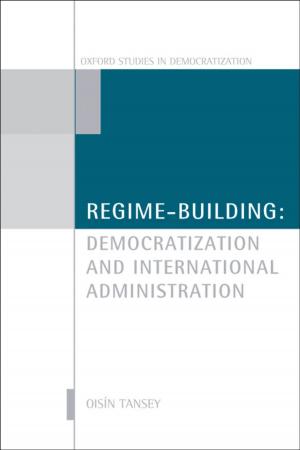Economic, Social, and Cultural Rights in Armed Conflict
Nonfiction, Reference & Language, Law, International, Social & Cultural Studies, Political Science| Author: | Gilles Giacca | ISBN: | 9780191026911 |
| Publisher: | OUP Oxford | Publication: | October 2, 2014 |
| Imprint: | OUP Oxford | Language: | English |
| Author: | Gilles Giacca |
| ISBN: | 9780191026911 |
| Publisher: | OUP Oxford |
| Publication: | October 2, 2014 |
| Imprint: | OUP Oxford |
| Language: | English |
This book addresses the international legal obligation to protect economic, social, and cultural human rights in times of armed conflict and other situations of armed violence. These rights provide guarantees to individuals of their fundamental rights to work, to an adequate standard of living (food, water, housing), to education, and to health. Armed violence can take many forms, from civil unrest or protest and other forms of internal disturbances and tensions to higher levels of violence that may amount to armed conflict, whether of an international or of a non-international character. However, in all such cases the protection of ESC rights is sorely challenged. Situations of actual or potential violence present a number of challenges to the application and implementation of human rights law in general and socio-economic rights obligations more specifically. This book sets out the legal framework, defining what constitutes a minimum universal standard of human rights protection applicable in all circumstances. It assesses the concept and content of ESC rights' obligations, and evaluates how far they can be legally applicable in various scenarios of armed violence. By looking at the specific human rights treaty provisions, it discusses how far ESC rights obligations can be affected by practical and legal challenges to their implementation. The book addresses the key issues facing the protection of such rights in times of armed conflict: the legal conditions to limit ESC rights on security grounds, including the use of force; the extraterritorial applicability of international human rights treaties setting out ESC rights; the relationship between human rights law and international humanitarian law; and the obligations of non-state actors under human rights law and with particular relevance to the protection of ESC rights. The book assesses the nature of these potential challenges to the protection of ESC rights, and offers solutions to reinforce their continued application.
This book addresses the international legal obligation to protect economic, social, and cultural human rights in times of armed conflict and other situations of armed violence. These rights provide guarantees to individuals of their fundamental rights to work, to an adequate standard of living (food, water, housing), to education, and to health. Armed violence can take many forms, from civil unrest or protest and other forms of internal disturbances and tensions to higher levels of violence that may amount to armed conflict, whether of an international or of a non-international character. However, in all such cases the protection of ESC rights is sorely challenged. Situations of actual or potential violence present a number of challenges to the application and implementation of human rights law in general and socio-economic rights obligations more specifically. This book sets out the legal framework, defining what constitutes a minimum universal standard of human rights protection applicable in all circumstances. It assesses the concept and content of ESC rights' obligations, and evaluates how far they can be legally applicable in various scenarios of armed violence. By looking at the specific human rights treaty provisions, it discusses how far ESC rights obligations can be affected by practical and legal challenges to their implementation. The book addresses the key issues facing the protection of such rights in times of armed conflict: the legal conditions to limit ESC rights on security grounds, including the use of force; the extraterritorial applicability of international human rights treaties setting out ESC rights; the relationship between human rights law and international humanitarian law; and the obligations of non-state actors under human rights law and with particular relevance to the protection of ESC rights. The book assesses the nature of these potential challenges to the protection of ESC rights, and offers solutions to reinforce their continued application.















